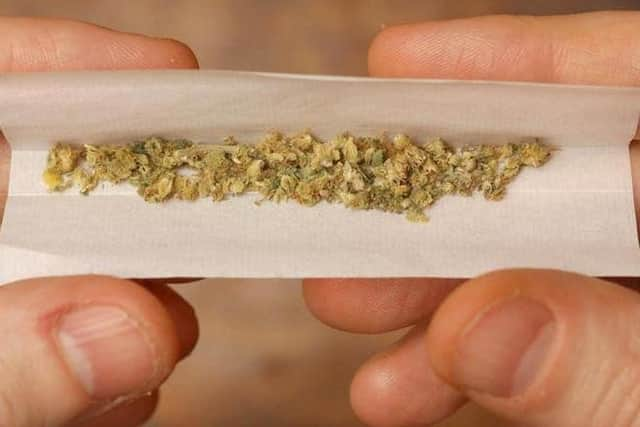Around one in seven people caught with cannabis by Milton Keynes' region charged
and live on Freeview channel 276
round one in seven people caught with cannabis in Thames Valley last year were charged, figures reveal.
Campaigners say enforcement of the law dictating cannabis use is a "postcode lottery" and have called for possession of the drug to be decriminalised altogether.
Advertisement
Hide AdAdvertisement
Hide AdHome Office data shows that of 3,571 cannabis possession offences closed by Thames Valley Police last year, 486 resulted in a charge or summons.


That's a charge rate of 14%, although it excludes a further 461 offences that had not yet been assigned an outcome.
Across England and Wales, there were 117,000 cannabis possession offences recorded in 2020 that had reached an outcome.
Of those, 17% ended in a charge – down from 21% in 2019.
The figures do not include Greater Manchester Police as it did not submit complete data.
Advertisement
Hide AdAdvertisement
Hide AdNorth Wales Police recorded the highest charge rate, at 34%, while Surrey Police charged just 7% of offences.
Niamh Eastwood, executive director of drugs charity Release, said young people are disproportionately criminalised for having the drug, limiting their education and work opportunities.
“It is right that most people caught in possession are not charged and avoid the burden of a criminal record,” she added.
“That being said, the postcode lottery that exists in how this offence is treated is why we need a national approach.”
Advertisement
Hide AdAdvertisement
Hide AdShe said the Misuse of Drugs Act – which is 50 years old this month – has not succeeded in reducing drug use and called for decriminalisation of possession coupled with investment in treatment.
The most common type of outcome recorded by Thames Valley Police last year was an informal out of court disposal, which accounted for 1,970 offences.
The majority of these were community resolutions, which could involve an apology and some form of reparation, while the rest were warnings.
In 2019-20, a new outcome was introduced to reflect when an offender is sent on a diversion scheme, such as a drug awareness course or treatment.
Advertisement
Hide AdAdvertisement
Hide AdForces across England and Wales used this type of scheme around 2,300 times last year, the figures show.
“Police on the front line recognise that the criminalisation of small-scale drug possession is expensive and counterproductive,” said Martin Powell, head of partnerships at the Transform Drug Policy Foundation.
“We also know that the enforcement of cannabis laws falls very disproportionately on people from black communities, leading to greater mistrust of the police.
“This is why forces across the country are introducing programmes to divert people away from the criminal justice system into education and support.”
Advertisement
Hide AdAdvertisement
Hide AdMr Powell added that some forces which use diversion schemes, including Thames Valley Police, can record them under other categories such as community resolutions.
A Home Office spokeswoman said: “We have no plans to decriminalise cannabis – there is clear scientific and medical evidence that it is a harmful drug which can damage people’s mental and physical health, and harms individuals and communities.
“The police have a range of powers at their disposal to deal with drug-related offences in a way that is proportionate, and in the public interest.”